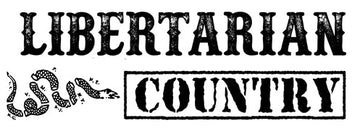Introduction
Thomas Sowell’s Black Rednecks and White Liberals is not a conventional book of political commentary. Instead, it is a comprehensive collection of essays that examines how culture, history, and intellectual trends influence the trajectory of groups and nations. First published in 2005, the book challenges comfortable narratives about race, oppression, and the causes of inequality. For libertarians, Sowell’s arguments offer both reinforcement and a reminder of how deeply cultural choices—not simply government policies—affect freedom and prosperity.
This article offers a concise summary of the book’s main themes and examines how its message aligns with libertarian philosophy.
Core Themes of the Book
1. The Black Redneck Thesis
Sowell’s title essay argues that many self-destructive behaviors often attributed to systemic racism—such as high crime rates, broken families, and educational underachievement—can be traced instead to cultural patterns imported from the “redneck” or “cracker” culture of the British borderlands. Scottish, Irish, and Welsh immigrants carried a tradition of violence, distrust of education, impulsivity, and honor-based retaliation to the American South. These values persisted long after slavery, shaping both white and black communities.
Sowell’s point is not to stigmatize but to demonstrate that cultural legacies, not innate racial traits, explain much of what we see in society today. Cultures change, but not easily—and they matter more than political rhetoric admits.
2. The Role of Intellectuals and White Liberals
Another essay critiques how well-meaning intellectuals and progressives—what Sowell calls “white liberals”—have undermined progress by excusing harmful behaviors in minority communities. Instead of treating people as responsible individuals, they frame them as helpless victims of systemic oppression. This patronizing stance, Sowell argues, denies agency, discourages accountability, and perpetuates cycles of dependency.
3. Culture and Economic Development
Beyond America, Sowell compares how cultural norms impact success worldwide. For example, he contrasts the industriousness of German immigrants in the U.S. with the slower economic progress of groups who retained fatalistic or collectivist traditions. He shows how certain values—work ethic, education, savings, and entrepreneurship—consistently lead to prosperity across cultures, regardless of skin color.
4. Slavery and Historical Myopia
Sowell dismantles the myth that slavery was uniquely Western or American. He points out that slavery existed in every corner of the world for millennia, and that the West, unlike other civilizations, led the global movement to abolish it. By highlighting this, he undercuts the idea that the United States is uniquely guilty or that modern inequalities can be explained solely by slavery’s legacy.
5. Race, Culture, and Policy Consequences
Throughout the book, Sowell emphasizes that policy divorced from cultural reality often backfires. Social programs built on faulty assumptions—such as welfare policies that discourage work or housing projects that concentrate dysfunction—create more problems than they solve.
Libertarian Resonance
Individual Responsibility over Collectivism
Libertarians stress that freedom and responsibility are inseparable. Sowell’s critique of “white liberals” aligns with this: treating individuals as victims of circumstance encourages dependency on the state rather than empowering personal agency. His insistence that cultural choices matter more than government programs reinforces the libertarian principle that individuals, not bureaucracies, are the ultimate drivers of progress.
Skepticism Toward Central Planning
Sowell documents how top-down policies, crafted by elites with little understanding of cultural dynamics, often worsen the very issues they intend to fix. This mirrors libertarian skepticism about central planning. Whether in economics or social policy, sowing dependence and ignoring incentives rarely produces freedom or prosperity.
Universalism and Human Nature
Libertarianism rejects identity-based hierarchies in favor of universal rights. Sowell’s global survey of cultures shows that no race is inherently superior or inferior—success stems from cultural values and choices. This reinforces the libertarian commitment to judging individuals on their actions, not their ancestry.
Cultural Change from the Bottom Up
Libertarians often argue that real change must arise organically through voluntary interaction, not coercion. Sowell’s work underscores this: cultures evolve gradually through habits, norms, and voluntary reform. Attempting to impose virtue by government fiat ignores human behavior and typically fails.
Conclusion
Black Rednecks and White Liberals is a provocative book that dismantles myths about race, history, and inequality. Sowell’s central message—that culture matters more than race, and that treating people as responsible individuals leads to progress—fits squarely with libertarian values.
Libertarians can draw two lessons from Sowell: first, that freedom without responsibility leads to decay, and second, that genuine progress requires honesty about culture, not comforting narratives. In an age where collectivist ideologies once again tempt Americans, Sowell reminds us that liberty, accountability, and respect for truth remain the foundation of a free society.
Keep reading, it's not illegal yet! Also, check out our latest for the thinking class! 👇


